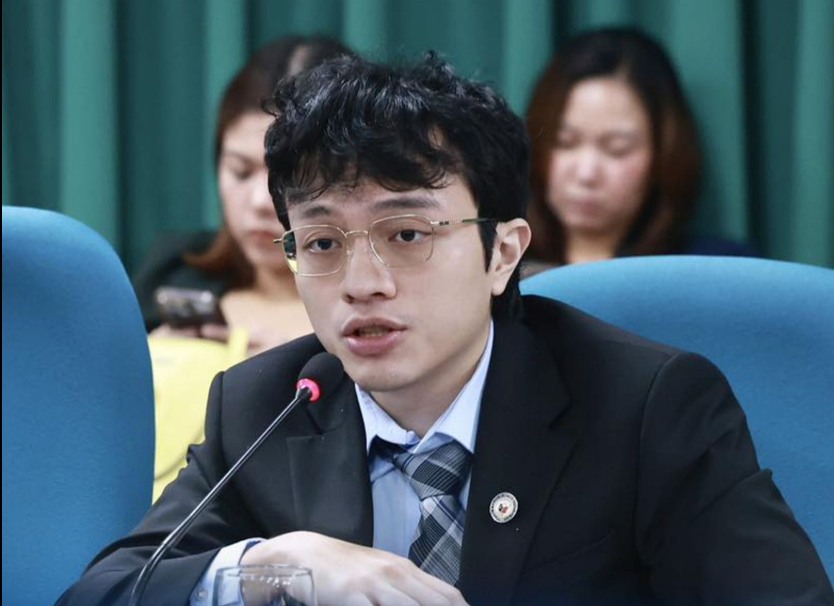Today, June 30, the 19th Congress (2022-2025) passed into history, not merely as a legislative body that fulfilled its constitutional mandate, but as a chamber that showed what sustained collaboration between the executive and legislative branches can truly accomplish.
With 33 priority measures under the Common Legislative Agenda (CLA) of the Legislative-Executive Development Advisory Council (LEDAC) passed into law, this Congress has been one of the most productive in the post-EDSA era. These included landmark economic and tax reforms such as the Public-Private Partnership (PPP) Code of the Philippines, the Corporate Recovery and Tax Incentives for Enterprises to Maximize Opportunities for Reinvigorating the Economy (CREATE MORE) Act, the Real Property Valuation and Assessment Reform Act, the Capital Markets Efficiency Promotion Act, the Trabaho Para sa Bayan Act, and the Tatak Pinoy Act.
Moreover, critical measures on social development, particularly in education, such as the Academic Recovery and Accessible Learning Program Act and the Enterprise-Based Education and Training Framework Act, as well as measures to boost agricultural productivity such as the New Agrarian Emancipation Act, the Anti-Agricultural Economic Sabotage Act, and the Amendments to the Agricultural Tariffication Act were also signed into law.
“This marks the highest number of priority measures passed since the 10th Congress during the Ramos Administration. Out of the 64 priority bills under the LEDAC CLA, 33 have been enacted into law. In addition, seven more priority measures have been ratified by both the Senate and the House of Representatives,” said Department of Economy, Planning, and Development (DepDev) Secretary Arsenio M. Balisacan.
The seven bills that were ratified just before sine die adjournment were the E-Governance Act, the Accelerated and Reformed Right-of-Way (ARROW) Act, the Government Optimization Act, the Liberalization of the Lease of Private Lands, the Konektadong Pinoy Act, the Enhanced Fiscal Regime for Large-Scale Metallic Mining Act, and the Virology Institute of the Philippines Act. These pieces of legislation are now in Malacañang awaiting the President’s signature.
As someone who worked closely with President Fidel V. Ramos, I am happy to witness this resurgence of institutional synergy. Almost three decades after his presidency, the Ramos administration remains the gold standard for how executive-legislative collaboration can deliver real results. It was during FVR’s term that 227 landmark laws—not to mention hundreds of other legislative measures—were enacted. These major laws reshaped our economic, social, and political landscape with discipline, consensus, and vision.
The 10th Congress (1995–1998), which capped FVR’s term, was unprecedented. Among its defining achievements were the Indigenous Peoples’ Rights Act of 1997 (RA 8371), the Social Reform and Poverty Alleviation Act (RA 8425), the Fisheries Code of 1998 (RA 8550), and the Intellectual Property Code (RA 8293). These were complemented by equally transformative measures such as the Migrant Workers and Overseas Filipinos Act of 1995 (RA 8042)—a pioneering statute institutionalizing state protection for Filipino workers abroad—and the Public Telecommunications Policy Act of 1995 (RA 7925), which opened the telecommunications sector to greater competition and innovation.
The feat of the 19th Congress is even more impressive when viewed against today’s complexities—a world emerging from a pandemic, redefining global alignments, and confronting the climate crisis. Through its legislative output, it has shown that even in uncertain times, democracy can deliver—when dialogue triumphs over discord, and performance over partisanship. This achievement, in no small part, is a credit to the leadership in both chambers of Congress.
“This achievement would not have been possible without the heightened synergy between the Senate and the House of Representatives. We extend our sincere gratitude to Senate Presidents Francis Escudero and Juan Miguel Zubiri, and House Speaker Ferdinand Martin Romualdez, for their unwavering commitment to advancing our country’s legislative agenda for a brighter future for all Filipinos,” Balisacan said.
As the 20th Congress opens on July 28, I trust that the House of Representatives and the Senate—should the impeachment trial against Vice President Sara Duterte proceed—will not lose sight of its primary mandate: to craft laws that empower, protect, and uplift the Filipino people. Political exercises have their role in a democracy, but they must never eclipse the larger responsibility of building the nation’s legal and developmental architecture.
In bridging the past and the present, the 19th Congress not only honored a legacy of productivity—it built upon it. If the 10th Congress was a moment of reformist clarity, then perhaps today marks a renaissance of that same governance DNA. Our hope is that this spirit will not only endure under the 20th Congress but evolve.
For comments, you may email jojoterencio@gmail.com




